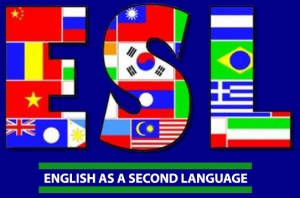
Any teacher will tell you that there are problems in education. Problems in the classroom. Problems with student behavior. Problems with administration. Problems with government regulation. I began teaching ESL – English as a Second Language – in foreign classrooms for foreign schools and companies all over the world about 5 years ago. From the Iberian to the Korean Peninsulas, I have observed many difficulties that exist in overseas classrooms, but particularly ones that occur in ESL situations.

The most obvious of these issues is that most students do not develop the necessary critical thinking skills required to be successful in academia or in the work force. Perhaps my expectations are too high since I’ve valued my own education from the time I was a young child (my parents were both very actively involved in my learning, even reading books to me before I could speak). I surrounded myself with overachievers, so now that I’ve reached adulthood, I often get disappointed, discouraged, and disillusioned with what I deem to be a quickly sinking average IQ across the globe (but it might have always been low, I just never exposed myself to those people).
I’m a believer in life–long learning. Many of the cultures in which I teach barely believe in childhood learning. The basic concept of bettering oneself, and upward mobility in general, is alien to many who live in third-world countries. It’s a shame really, but when I get into a classroom full of students who are unable to answer simple logic questions (why? for example), my heart breaks a little.

Along the same lines, I have also observed that the students are a direct reflection on their elders. In many of these nations, the idea of education is a relatively new concept. Some students are the first generation to attend school, especially if they hail from rural villages. I remember being in Turkiye and learning that my 16 year old students’ parents never graduated from high school. What has always been more important than individuals in these nations is family – so even at the youngest of ages, children went to work in fields or factories in an effort to contribute to the family income stream. Which begs the question: how can a 10 year old care about their own education when their primary role models never did (and still don’t)?

Thirdly, and also on a related thread, students in most foreign countries (Far East Asia aside) are never taught how to be students. In the US, the first things that kindergartners learn is how to sit still (you’d be surprised how hard this is for most foreign students – they must all have ADHD), raise their hands, walk in straight lines, and other basic classroom etiquette. As they age, they’re taught how to properly take exams while in school, and how to study for those exams while at home. Teachers and parents in America are equally invested in the development and progress of the youth who look up to them. Working abroad has opened my eyes to 14 year olds who behave like 5 year olds and 45 year old adults who behave like 14 year old teenagers. It’s completely a mess.
The next two issues are specific to the ESL world.

The only requirement for an ESL teacher is being a native English speaker (and in many countries, this isn’t even set in stone – I have worked along side teachers born and raised in Thailand and Romania). I have met teachers who are so young, they are only extending their college partying experience with a year abroad (so to speak) so they can travel. I have also met teachers who couldn’t care less about the quality of education they provide to their students. I have rarely, if ever, met an actual qualified teacher. Employers are literally floored to see Jen’s resume and learn that she not only has one, but two master’s degrees in education. They just never see it (hell, even I don’t have a degree in education).
Most ESL teachers come from the US, Canada, and the UK and I would guess many haven’t ever been instructed in the proper way to create a lesson plan. Just because you know how to speak the language, doesn’t mean you know how to teach it (so in this regard, the teacher from Romania, who’s familiar with the official grammar rules, is superior to the native speaker). Some put effort in, of course – I’m not saying all are blase. But you’d be hard-pressed to find an ESL educator familiar with Kolb’s learning styles, or even know what the word pedagogy means. Similarly to a bachelor’s degree, a simple TEFL certificate hardly prepares someone for employment in the real world.

Perhaps the single biggest issue in the ESL industry is this: lack of life experience. I know it sounds unimportant, but nothing could be further from the truth. I go into these classrooms to teach English. English is a form of communication. I’m not there to teach students how to think or give them things to talk and write about. They are supposed to come to the table with ammunition themselves. I have had students who have never traveled outside of their village. I have had students who have never been on vacation, or slept in a hotel room. I have had students who don’t have any hobbies, interests, or unique personality traits – other than soccer and shopping – that separate them from the pack.
How can an ESL student possibly write or speak in an effort to learn a new language, when they haven’t done anything worth writing or speaking about?
Very few of my students have ever been to a theme park, taken a dance class, played a musical instrument, or opened a history book. And…
Reading for fun… WHAAAAAT????
They only seem to care about cell phone games and partying. They know next to nothing about foreign countries and cultures; they know very little about their own country and culture. In the US, students are given ample opportunities to participate in extra–curricular activities after school and on weekends. That doesn’t seem to happen in the third-world. And so, when I present a lesson during which the English learners are supposed to have opinions and share ideas about their lives, they simply sit there dumbfounded with nothing to say or write. They seem like empty, hollow shells of people (it reminds me of Westworld in a way).
I welcome your comments below.
Until Next Time…
-Justin
Excellent observations
Some good observations, although I think it’s harsh to focus on third world countries as by their very nature they are f****d. Their life experience and the life experience of those of us from much more developed countries is a much different experience. The focus is largely on survival (food and shelter, the first priorities in Maslow’s hierarchy of needs). That being said, the students I taught in Indonesia were excellent. Focussed, motivated, damn hard working and they moved through the CEFR levels very quickly. When I compared them to Madrid, the capital of a first world country (allegedly), they were far far superior students. They key factor that I find in Spain is the lack of critical thinking or imagination – both with adults and children. I believe – I know – I create stimulating lessons, but Christ, sometimes I feel like I’m staring at a bunch of people who’ve just woken up from a coma! But after speaking to teachers and students, this is largely down to the manner of teaching in schools. Here it is lots of listening to the prof stood at the front then writing lots and lots of stuff down. I’ve come to realise that we take the quality of our educational approach in schools (good or bad) for granted.
What you found in Spain I have also observed across the board in non-North American countries from Spain all the way to South Korea. There seems to be less of a focus in the classroom on independent thinking, individuality, critical thinking, and creativity. I agree with you.